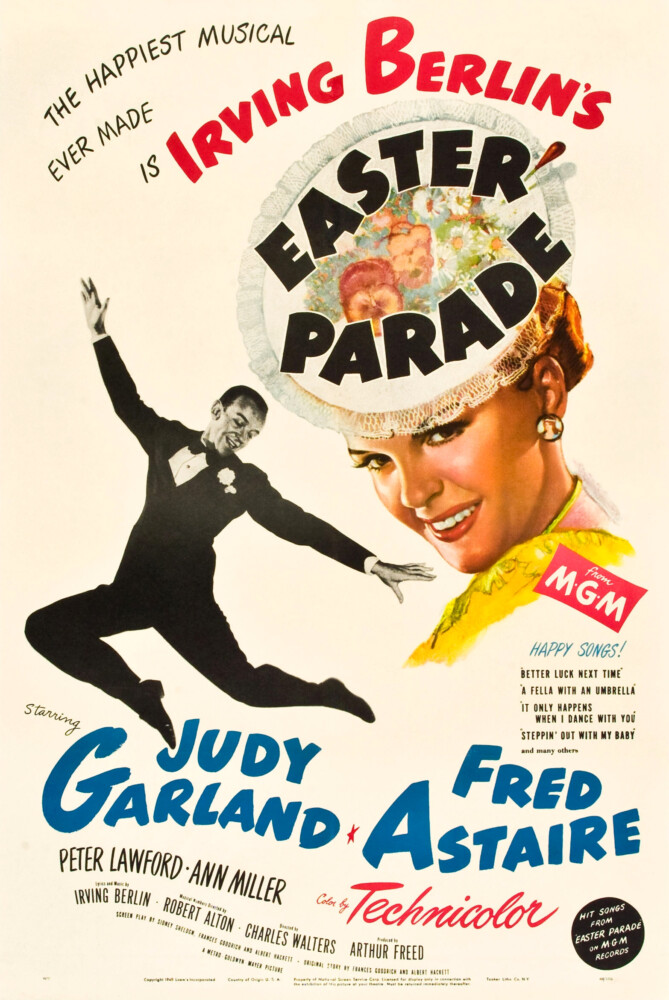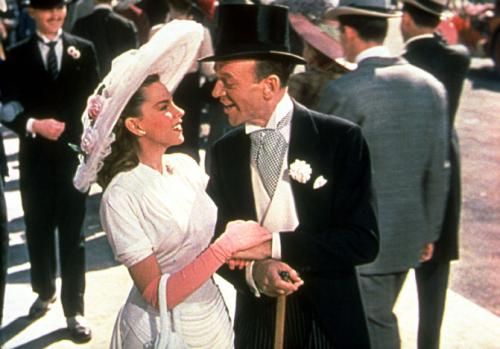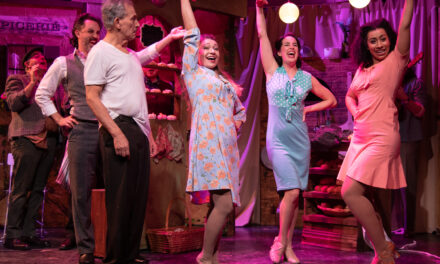By Brian Scott Lipton

The first teaming of legends Judy Garland and Fred Astaire. The timeless tunes of the great Irving Berlin. There was simply no way MGM could possibly have laid an egg with their 1948 movie musical Easter Parade—and, no surprise, this fresher-than-springtime delight, now available on BroadwayHD, proved to be one of the studio’s most financially successful films.
In some ways, Easter Parade was actually a “happy accident.” Gene Kelly was set to star in the lead role of Broadway dancer Don Hewes, but after being sidelined by an injury, a “retired” Astaire took over the role. And the juxtaposition of Astaire’s flintiness and Garland’s earthiness makes the picture even more fun to watch, especially as the ultra-perfectionist Hewes struggles to turn Garland’s singing waitress Hannah Brown into his dance partner after he’s been unceremoniously dumped by the haughty Nadine Hale (the divinely glamorous Ann Miller).
Indeed, it takes a while for Don to realize how to take advantage of Hannah’s own special gifts, most notably a flair for comedy, and he comes close to losing her affections to handsome, well-to-do Johnny Harrow (a charming Peter Lawford). But even with Astaire and Garland’s different temperaments, the film’s happily-ever-after conclusion is assured, although it’s always delicious to hear Astaire tell Garland in the final scene “why didn’t you tell me I was in love with you” right before they stroll together down Fifth Avenue.


Still, no one really watches MGM musicals for the plots, and, as is expected, the songs and dance numbers rarely disappoint. Astaire taps his way through two incredible (and incredibly difficult) specialty numbers, “Drum Crazy” (in which he almost destroys a toy store) and the lavish “Steppin’ Out with My Baby” (complete with a touch of slow-motion choreography), each of which remind us why he was the greatest male star in the MGM firmament.
Sadly, Garland doesn’t get a ballad worthy of her talents; in fact, the extraordinary “Mr. Monotony” didn’t make the film’s final cut. No matter. I could watch her and Astaire endlessly camp it up in “We’re a Couple of Swells” or dazzle their way through a marvelous montage that includes dynamite renditions of “I Love a Piano” and “When the Midnight Choo-Choo Leaves for Alabam.”
Meanwhile, Miller effortlessly proved why she would become one of MGM’s not-so-secret weapons in the terrific tap number “Shakin’ the Blues Away” and also shows off her sensual side opposite Astaire in the gorgeous “It Only Happens When I Dance with You.”
Easter may have passed, but don’t let the calendar dissuade you from celebrating any day this month with this magical musical. www.broadwayhd.com





















